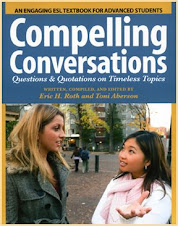Teachers Urge Google to Create Search Engine for K-12 Students
How do K-12 students actually conduct online research for their classes? Do they systematically pursue a topic, use critical thinking to evaluate sources, and focus on the assigned topics? Or do they wander, often confused and easily distracted, from site to site? Is it possible for Google, the creator of the best online search engine,to create a specialized search engine just for K-12 students? Could Google, in other words, do for the K-12 students, teachers, and librarians what it has done for elite graduate students with the excellent search engine Google Scholar?
That’s the question that Dorit Eilon and a group of tech savvy teachers and educators are asking at Classroom 2.0 .
“We are a group of educators who for the past 7 months did an extensive research about on-line research and the education world. According to studies most students (and teachers) have difficulty conducting an efficient on-line research and most do not understand how Google or other search engines work.
Students, well versed in IM and SN (Social Networking) stumble when they conduct on-line research.
Even with technology many teachers still use the web in isolation. Teachers find great links that… stay on their computer, on their own website or their own blog.
So a group of us, educators, would like things to change.
We dream of a search engine that is unique to the education community with searches that produce text, video, audio results at the same time, where both commercial and school created material is accessible and monitored (we have a whole plan), where the resources will be identified, contributed and monitored by educators in phase one and Middle School / High School students in phase two. A search engine that it’s content will grow by the education community. and we want Google to be a part of it, to work with us to develop it and provide the technology.
But, we need librarians, teachers and students to talk about the day-to-day difficulties of navigating the web. We need educators to speak up so we can show that there is a real need not just plain statistics.
We imagine a search tool that will allow you to search within sites created by teachers, ability to rate sites / review, ability to search by “author” (person contributing links) , connection to Google Maps and much more.
If you feel the same way please go to our blog to look at comments and votes. While there, please take a vote and leave a comment to have your voice and opinion heard. http://cangooglehearus.blogspot.com/
Together we can make a difference.”
Sounds right to me. As the leading search engine and innovative technology company, Google can play an even more prominent role in improving education across the globe. Let’s hope Google hears this eloquent plea for a more student and teacher friendly search engine.
The gap between what could be done and what is being done in American public schools, especially in terms of teaching technological literacy and critical thinking skills, remains huge. I recently heard about a student that examined 55 professions and evaluated their use of modern technologies. Unfortunately, public education in the United States ranked in the bottom 5 institutions in terms of using new technologies. This oversight, perhaps born of inertia and lack of funds, must be corrected. Google, a relatively enlightened socially conscious company, should lend a helping hand and lead - again - the way.
If you feel the same way, please visit http://cangooglehearus.blogspot.com/and sign the petition.
Ask more. Know more. Share more.
Create Compelling Conversations.
Visit www.CompellingConversations.com





